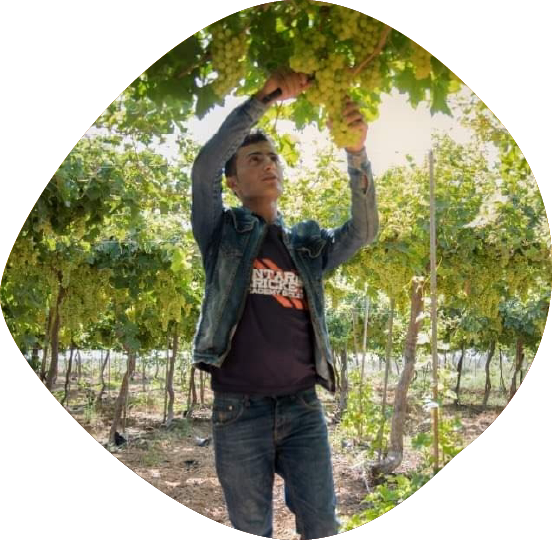 OUTCOME STORY
OUTCOME STORY
Jordan’s farms prove fertile ground for water-saving innovations
Few countries understand the problem of dwindling water supplies like Jordan. The Middle Eastern state, which spans diverse but generally arid terrain between the Red Sea and the Dead Sea, has been ranked as the second most water-scarce country on the planet.
A combination of climate change, agricultural expansion and a doubling of the country’s population over the past decade has caused water availability in Jordan to drop by a third in recent years. Today, the average Jordanian has access to less than 100 cubic meters of renewable water resources per year, which is well below the 500-cubic-meter threshold that signals severe water scarcity. In addition, the shortages are threatening Jordan’s agricultural productivity and food security.
Water-saving technologies
The Water Innovation Technologies (WIT) project was set up in 2017 to turn the tide on Jordan’s growing water scarcity. It was designed to conserve water at the household, farm and community level by promoting the widespread and lasting use of water-saving technologies and practices.
The project, which was completed in 2022, focused on using market systems to reduce over-irrigation in olive, grape and stone fruit farms in the Jordanian Highlands. With agriculture accounting for over half of Jordan’s total water use, water savings in this sector could not only strengthen food security, but positively impact the country’s overall water security.
As a sub-awardee of the WIT project, IWMI worked alongside primary implementor Mercy Corps to conduct the project’s monitoring, evaluation and learning. As part of this, IWMI developed an on-farm water accounting approach using analog water meters to quantify water savings in participating farms. This approach tracked water savings by comparing water use in trial plots, where farmers adopted techniques such as improved drip irrigation, with water use in control plots, where farmers made no changes to their existing practices.
 Behavioral change supports water conservation
Behavioral change supports water conservation
At the time of completion in 2022, the WIT project had, among other accomplishments, collaborated with six suppliers to provide more efficient irrigation technologies to farmers, supported the development of loans which encouraged the uptake of water-saving tools, and reached more than 5 million Jordanians with awareness-raising communications and other initiatives.
These and other measures enabled the WIT project to conserve 28 million cubic meters of fresh water – far exceeding its original target of 18.5 million cubic meters. Participating farms optimized water use across more than 2,000 hectares of farmland, saving 24 million cubic meters of water. An economic analysis of the project found that farmers who adopted water-saving technologies enjoyed a high return on investment. This suggests that adopters of such technology, even if they bear the full cost of installation, will still enjoy a positive return on their investment.
In a surprise finding, IWMI identified that use of its on-farm water meters proved to be a water-saving technology in itself. Able to see how much water they were using, farmers began reducing water use in control plots by mirroring the practices they had adopted in the trial plots, which led to a lasting change in water-use behavior. This suggests that IWMI’s water meters could have an important role to play in future water optimization projects beyond merely monitoring water use in Jordan.
Recognition and awards
The outcomes of the WIT project have seen IWMI recognized as an expert in highlighting the relationship between sustainable water management, agriculture and food security. In recognition of its findings, IWMI was awarded first prize in the World Food Forum Transformative Research – Innovation Lab Award in 2021.
In 2022, IWMI was invited to join the World Food Forum and the Food and Agriculture Youth Institute in hosting the Role of Water prize. The global prize, which will be awarded in 2023, will celebrate young researchers’ innovative solutions that simultaneously address the world’s water crisis and contribute to achieving Sustainable Development Goal 2 (zero hunger). The winners will receive internships at IWMI, helping to ensure that water-saving innovations in agriculture will remain a priority for the next generation of researchers.
We gratefully acknowledge the United States Agency for International Development (USAID) for its contributions to the WIT project.
